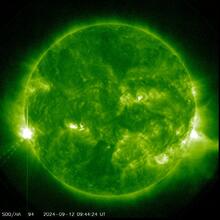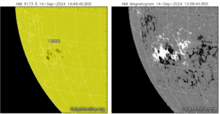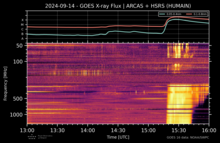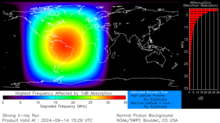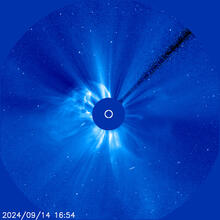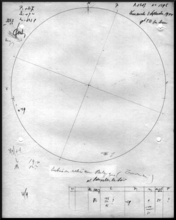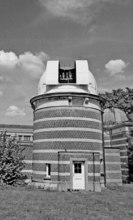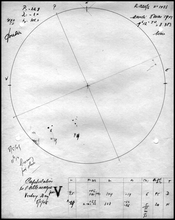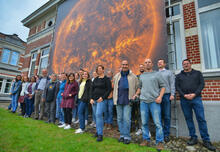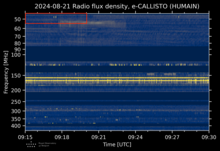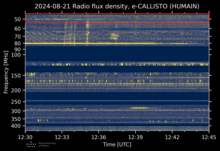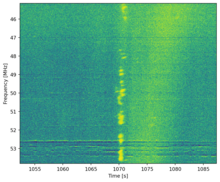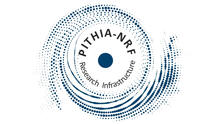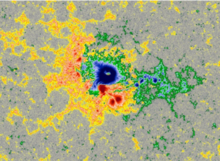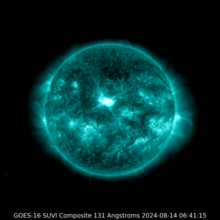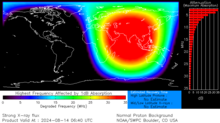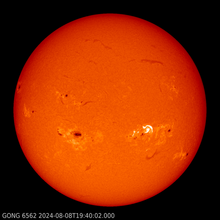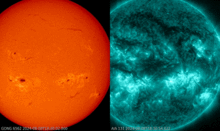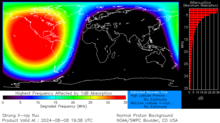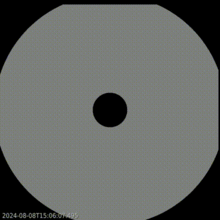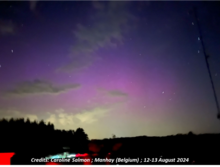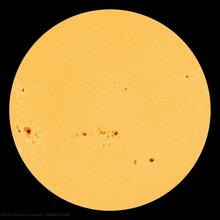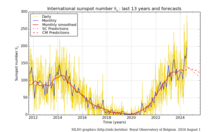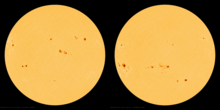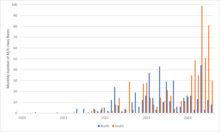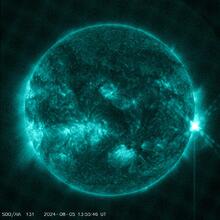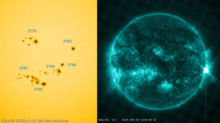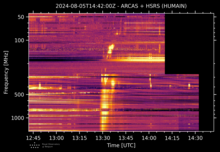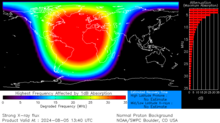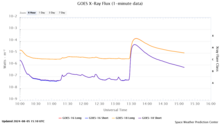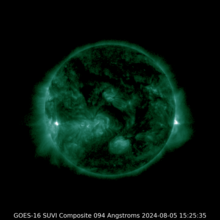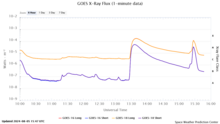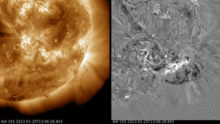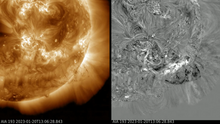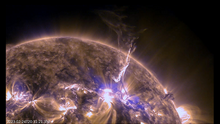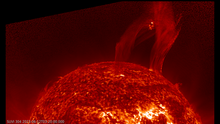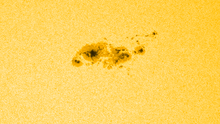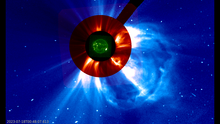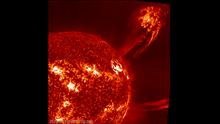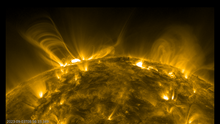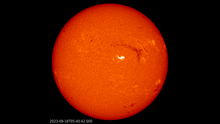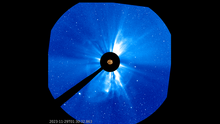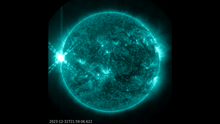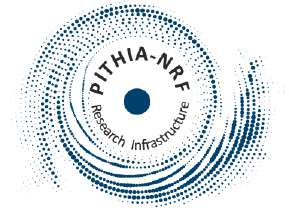news
Submitted on 2024-09-14
NOAA 3825 produced its 2nd X-class flare in as many days. The X4.5 flare peaked on 14 September at 15:29UTC. ***UPDATED (1)***
Submitted on 2024-09-04
80 years ago, the Allies liberated Brussels, and this event did not go unnoticed by our solar observers.
Submitted on 2024-08-29
Once more, the solar physics team of the Royal Observatory of Belgium invites external researchers to join in the data exploitation of its space telescopes on the PROBA2 microsatellite (SWAP, LYRA) and on Solar Orbiter (EUI).
Submitted on 2024-08-23
In the past couple of weeks, the radio-astronomy team has worked relentlessly on a new setup and calibration procedure for the SPADE instrument.
Submitted on 2024-08-21
PITHIA-NRF launches its seventh call. Apply and come visit the STCE!
Submitted on 2024-08-14
NOAA 3784 joined the club of X-class flare producing regions by unleashing an X1.1 on 14 August.
Submitted on 2024-08-08
NOAA 3777 produced an X1.3 flare on 8 August. The associated CME has an earth-directed component. ***UPDATED (3)***
Submitted on 2024-08-06
Driven by solar activity in especially the southern solar hemisphere, sunspot numbers reached their highest monthly values since December 2001.
Submitted on 2024-08-05
An X1.7 flare was produced on 5 August at 13:40UTC. It was followed by an X1.1 flare at 15:27UTC produced by a different active region. ***UPDATED***
Submitted on 2024-07-30
An overview and movie of some spectacular solar and space weather events in 2023 are available at the STCE's solar cycle highlights webpage.
Pages
Zircon - This is a contributing Drupal Theme
Design by
WeebPal.


